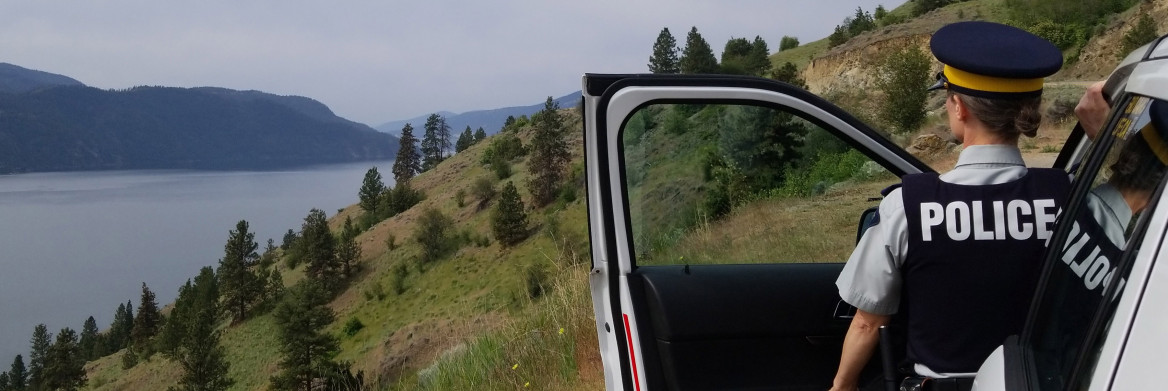There isn't a typical day at the RCMP's regional Vernon North Okanagan detachment.
In the past year, officers found themselves on a 12-hour search-and-rescue operation, securing the area around an improvised grenade and saying hello to ice fishermen during community patrols.
Sitting in British Columbia's scenic Interior, this detachment has five offices serving multiple communities in the North Okanagan including Vernon, a city home to half the region's 84,000 residents. The other four offices are in Armstrong, Lumby, Enderby and Falkland.
Supt. Shawna Baher, the officer in charge of the 100-person detachment, says its regional nature means police encounter an array of situations.
"In the city, crimes associated with drug addiction, personal safety and homelessness are issues we see daily. In the smaller offices there are issues, but traffic or youth may be more of a priority," says Baher.
Outside of Vernon, officers can find themselves deep on forest service roads and spend up to an hour driving between calls.
"Rural officers need to be switched on at all times and be self-sufficient," says Sgt. Glen Caston, who works in the detachment's Enderby office. "Backup and services like fire and ambulance can be delayed due to geography."
Caston says the rural areas face the same challenges as the city, such as the drug trade, but on a smaller scale.
"It becomes a big issue to the people who live here," says Caston. "They live in the country for a reason and when they're faced with big city problems, it's frustrating."
Collaboration
The regional detachment — responsible for policing the City of Vernon, surrounding small towns and Indigenous communities — allows officers to come together across 7,500 square kilometres.
Sharing resources is important during peak vacation seasons. Vernon is a tourism hotspot and in 2016, it contributed $190 million to the local economy.
"During special events, we can target things without having to worry about one police officer being from Enderby another being from Armstrong," says Sgt. David Evans, who has worked in the detachment's rural area and in the City of Vernon.
In Vernon, more visitors requires more police visibility.
Vernon's Downtown Enforcement Unit uses foot and bicycle patrols to increase their presence, and adds extra patrols on Friday and Saturday evenings during the summer.
"We have to get out and be more visible," says Evans, who co-ordinates the downtown unit.
The RCMP also patrols local lakes checking for impaired driving and other violations, and conducts ATV patrols around backwoods campgrounds.
In the rural areas surrounding Armstrong, Lumby, Enderby and Falkland, officers are involved with search-and-rescue operations if hikers, bikers or skiers run into trouble.
"We're the liaison between families and friends, and the rescue agencies," says Caston.
Not immune to drugs
The picturesque region hasn't escaped a problem shared with many other communities: drug use and overdoses.
"The opioid crisis has caused a lot of havoc with deaths in our community," says Baher.
Vernon saw six overdose deaths in 2014. That number leaped to 24 in 2018, according to a report from the B.C. Coroners Service.
The detachment recently created a provincial pilot project that provides drug users in police custody with educational videos, support services and naloxone, a drug that blocks the effects of opioids. The project's second portion will introduce opioid replacement therapy while individuals are in custody.
"If we have people in our cells who want help, we can start an opioid replacement therapy and if they're stabilized on suboxone while in custody, they may not have the urge to use when they're out of our cells and therefore won't commit a crime to pay for their drugs," says Baher, who recently earned a Governor General Order of Merit for her work on the project.
Programs like the opioid pilot project are driven by community engagement and listening to residents' worries.
In Vernon, officers meet with downtown associations and community partners to hear concerns and in other communities, the detachment maintains a close relationship with municipalities and the Splatsin and Okanagan Indigenous reserves.
"It's what we can do instead of only looking at enforcement," says Evans.
